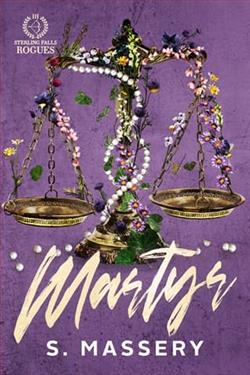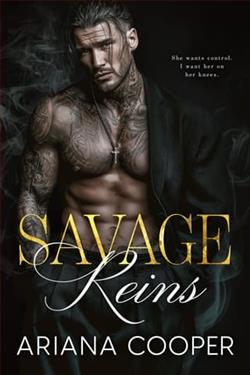Page 5 of The Chef's Kiss
I couldn’t help the smile that tilted my lips. This place was so… wholesome. My boss talked about her grandmother with adoration, and her fiancé smiled at her every time he walked through the front door of the shop. They both greeted each customer by name, welcoming them like part of the family.
“How old are you, Hudson?” she asked.
“The articles about me didn’t say?” I hated that Lena learned everything she knew first from articles touting my accomplishments and then from the ones chronicling my downfall. The downfall of the son of one of Manhattan’s most celebrated celebrity chef couples.
She stared at me for a moment.
“Thirty-one,” I answered finally.
A nod and a look of understanding. She leaned against the counter, straightening jars of homemade jams. “We do things differently here than I’m sure you’re used to. The restaurant has been a dream of mine since I had the idea to expand my family’s orchard business into all of this.” She gestured around her to the shop that sold all manner of apple products. An arched doorway led into a cafe that served ciders and fritters. The restaurant was to be in the building on the opposite side of the lake that stood at the center of the complex.
She slid a binder across the counter. “In here, you’ll find the names of businesses you’ll want to establish connections with, as well as some ideas I have.” She paused. “This isn’t just a chef gig. By all accounts and purposes, this restaurant is yours. I know you have training and had plans for operating your own place.”
I nodded, flipping through the binder. She was more organized than I’d imagined. When I showed up on a whim six days ago, without accepting or declining her offer first, she hadn’t batted an eye. Instead, she’d just wanted to get started, no questions asked.
I knew my reputation preceded me, but she really didn’t seem to care.
“My financial backing fell through.”
“I know that too.”
I looked up at her, wondering just how much of the truth she’d learned. Not everything was printed.
You’re incapable of love.
Wrong. I would love this restaurant. I had to. It was my last chance.
“I’m going to get to work.” I nodded in thanks, taking the binder with me as I headed for the door.
I hadn’t unpacked everything from my car into the tiny motel room outside town I was staying in, because for days I wasn’t sure how long I’d be here, if this was a fit. There was no going back now, though.
As I slid into my Range Rover, I leaned my head against the seat. This was happening. I could no longer call Manhattan home. Instead, I now lived in Maine. Just the thought of that sent a sigh through me. There was nothing wrong with Maine, necessarily. It just… wasn’t me.
I drove toward town, using the app on my phone to find my way. It was a cool day for May, so I was thankful for the designer suit I’d worn. Yes, it would help people take me more seriously, but it also made me feel like I’d brought some part of me here. I hadn’t left it all behind.
Parking along the street near the park in the main part of downtown Superiore Bay—if one could call it that—I got out and headed for a cafe called the Hugga Mugga, hopefully ironically. I needed coffee before I hit the pavement to schmooze this town into falling in love with me, something I’d been especially good at in the city.
Only a few patrons sat around tables inside the disgustingly adorable cafe. It was like I’d stepped into an episode ofGilmore Girls, a show I would never admit to having seen. I nodded and smiled at each, receiving only stares in return.
When I stepped up to the counter, I lifted my eyes to the limited menu.
“What can I get you?” The barista didn’t look up from where she steamed milk.
“Just a coffee please. Black.” I smiled, but she didn’t return it.
When she set the to-go cup in front of me, I almost laughed. Guess I wasn’t staying. Wordlessly, she swiped my credit card and handed it back.
“Have a good day.”
She didn’t respond, but I could have sworn I heard her mutter “city folk” under her breath. It wasn’t the first time in the last few days I’d run into that attitude, but it would subside. It was the same way New Yorkers reacted to tourists always stopping on the sidewalks to take pictures while we just wanted to be on our way.
The wine bar I needed to go to next didn’t open for another half hour, so I wandered into the park, past the white gazebo to where a handful of benches sat along the grass. Two women leaned close together, talking in low tones.
“Hello.” I lowered myself into a vacant seat. “Mind if I sit here a while?” I pasted on the practiced false smile, the one that always got me where I needed to be. In real life, more than a few people called me gruff or a jerk.
The two women looked at me. One of them cocked her head. “Where are you from, boy?”
I couldn’t remember the last time anyone called me boy. “New York City.”















